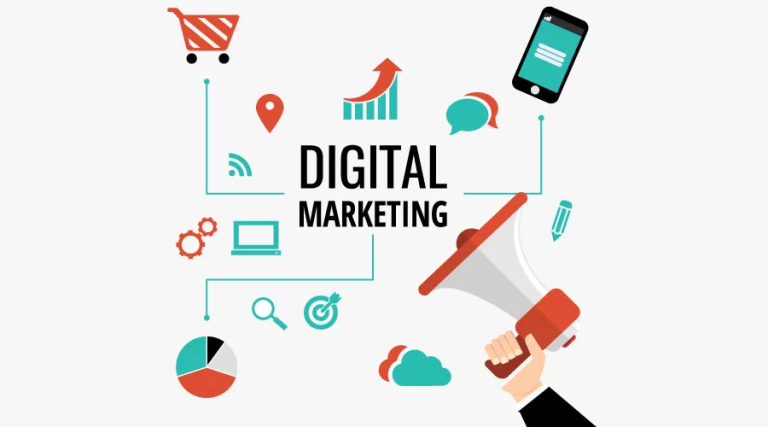





Regardless of industry or niche, your customers are online. Over 5 billion people use the internet daily, searching for products, services, and information. Digital marketing bridges the gap between businesses and their potential customers by meeting them where they spend most of their time.
Whether you’re a small business or a multinational corporation, digital marketing offers scalable options. From organic social media campaigns to high-budget paid advertising, there’s a solution for every size and stage of business.
Digital marketing provides real-time insights into customer behavior and campaign performance. This allows businesses of all types to make informed decisions and optimize their strategies for maximum ROI.

For small businesses with limited budgets, digital marketing is a lifeline. Through cost-effective channels like social media, content marketing, and local SEO, startups can build brand awareness, attract customers, and compete with larger players.
For online stores, digital marketing is essential. Techniques like Google Ads, retargeting, and influencer collaborations help drive traffic to product pages and increase sales.
From fitness trainers to consultants, digital marketing enables service providers to showcase their expertise. Platforms like LinkedIn and YouTube help establish authority, while strategies like lead magnets and email marketing nurture prospects into clients.
Local SEO, Google My Business listings, and geo targeted ads help physical stores attract nearby customers. By leveraging digital tools, even traditional businesses can drive foot traffic and boost sales.
Even highly specialized industries benefit from digital marketing. LinkedIn advertising, white papers, and email outreach campaigns make it easier for B2B companies to connect with decision-makers and generate leads.
Yes, digital marketing works for all businesses that are willing to embrace it with the right mindset, tools, and strategies. Whether you’re a solo entrepreneur or part of a global brand, digital marketing provides endless opportunities to grow, engage, and succeed.
Ready to unlock the potential of digital marketing for your business? The online world is waiting for you to make your mark!